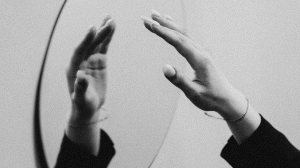Lose weight, exercise more, quit smoking, get a promotion, spend more time with family and friends, save money, go on that trip - these are just some of the goals people set at the beginning of a new year. The intention is there, the goal is set, and somehow at some point during the year it falls through the cracks. Why does this happen? How can we avoid it? Are there any good tips? Having been there, done some research and helped people achieve their goals, here are some of my key learnings : )
Failing hard
I remember writing capital letters in my notebook: BE MORE CONFIDENT. This was my big goal for the year, especially at work. Often, I would have an idea to share in meetings and personal retreats, but I would not dare to do it in front of everyone else. It was far too scary. What if they think my idea is stupid? What if I'm taking space and time away from someone smarter? What if I make a mistake in English when I speak?
These were the voices that kept me from contributing to my team. And damn it, I was frustrated. With my goal in mind, I went to the next team retreat determined to add my voice to the discussion. The first day didn't work. On the second day I said to myself "there will be other opportunities". The retreat ended and I was unsuccessful. And so it went all year. And I failed.
Why do we give up?
There are many reasons why we give up on goals or habits after setting them and trying for a while. Here are some of them:
They are too big or difficult
Going back to my story, I was lucky enough to have a manager who turned my failure into a real plan for success. The first thing she pointed out to me was that I was setting the bar way too high. Speaking in front of the whole organisation in a face-to-face retreat was probably the next level of confidence for anyone.
She introduced me to the 'ladder of achievement'. This is a structured approach to learning and achievement that breaks down a larger goal into distinct, progressive stages. It provides a clear path from beginner to expert, allowing learners to track their progress and feel a sense of achievement at each step.
So instead of speaking at a retreat, I went down a level: speaking on a team call. Then one level lower: intervening in a call with a sub-team, with far fewer people. Another level down: adding a written comment to a sub-team meeting, and so on and so forth. In the end, I had a nice ladder of small actions that would help me build my confidence bit by bit and make me feel like I was moving towards my goal!
Lack of specific planning
However, this beautiful plan was nothing without a proper timeline and milestones. So together we began to set up a schedule that would culminate in the retreat. I had four months to build my confidence. First month: add comments, thoughts or questions to the chat of the weekly sub-team calls. Second month: speak up at least once in a sub-team call and add my opinion to the chat of an all-team call. Third month: Intervene every time I have something to say in the sub-team calls. Intervene once in an all team meeting. Fourth month: intervene at the retreat.
No accountability
All set, but one thing was missing. How would I make sure I stuck to the plan? The answer is accountability. Without accountability you can have the most perfect plan and strategy in the world and the risk of it not being followed can still be high if there's no accountability for it.
In my case, we had weekly check-ins where I told her what I was going to do next and asked her to hold me accountable. Knowing that I didn't want to let her down gave me the extra push I needed.
No instant gratification
The lack of instant gratification is a trap. This is because our brains are actually hardwired to think "I want it now" rather than "I'll wait for something better later". Our human relatives had a pretty intense daily routine, responding to serious threats, securing their next meal and sheltering from storms.
In such an environment, it made perfect sense to focus on the here and now. Getting immediate rewards was crucial to survival. After thousands of generations of living this way, our brains have evolved with a strong preference for quick rewards. That's why we often struggle with long-term planning or resist delayed gratification. Our brains are still partly stuck in survival mode, even though our environment has changed dramatically.
This is one of the reasons it's hard to keep going to the gym if you don't see an immediate benefit, or to save money for a trip, learn a new language fluently, write a book, cultivate mindfulness, etc. One way to deal with this is to add small pleasures to beneficial long-term habits. In my case, I would say to myself "after I do two contributions, I will celebrate by going for a massage".
How do you make sure you keep your goal alive?
Besides what was said above (make it easy, have a proper plan, be accountable, get small gratifications), there are other factors that can help you succeed:
-
Consistency and patience
These are the twin pillars of successful goal achievement. Consistency builds habits, reinforces results, overcomes resistance, provides reliable data for tracking progress and creates momentum. It turns challenging tasks into automatic behaviours, making it easier to maintain progress over time. Patience, on the other hand, enables long-term thinking, manages expectations, enables learning and growth, helps overcome setbacks and ensures quality results. It provides the resilience needed to push through obstacles and temporary failures, while allowing time for necessary skill development and personal growth.
Think of all the heat and degree increases that go into an ice cube until it finally melts. You might start your journey at -20°C and you won't see any progress until you reach 1°C. But you needed all the increases in temperature, one degree at a time, until you saw the ice melting.So, when you think about giving up, imagine that you could be giving up at -1°C when change is about to happen. Be consistent and patient with yourself.
-
Environment
To increase your chances of achieving your goals, make your environment favourable to you. If you want to eat healthy, stop buying unhealthy foods (don't make them available and easy for you). If you want to go to the gym regularly, find one near your home or work. If you want to be more productive at work, identify your most productive hours and schedule high-priority or complex tasks for those times. You get the idea.
While personal motivation and intention are important, your environment often has a greater impact on your behaviour over time. By consciously shaping your environment to support your goals, you can make the path to success smoother and more automatic.
-
Make it visual
Creating visual representations of your success in pursuing your goal can be a powerful motivator. For example, you could use a jar and marbles or pebbles. Each time you go to the gym, add a marble to the jar. Watching the jar fill up over time serves as a tangible and visually striking reminder of your progress. Or, if your goal is to stop smoking, you can set up an account where you deposit every penny from the pack of cigarettes you haven't bought.
The key is to choose a visual method that resonates with you personally. Whether it's through digital interfaces, artistic creations or physical objects, making the progress of your habit visible can greatly increase your motivation and help to solidify your new goal.
-
People with similar goals
Your social environment, including family, friends and colleagues, can have a big impact on your habits and goals. Being around people who support your goals or are engaged in similar positive behaviours can reinforce your own efforts. For example, having a friend who is also trying to practice more gratitude can be a great accountability partner and another motivator for you. Community involvement and social support networks can increase motivation and accountability to maintain positive habits over time.
In conclusion, while setting New Year's resolutions is a common practice, the journey from intention to achievement is often challenging. Without the right strategies and mindset, these well-intentioned goals can easily fade away as the year progresses. Remember, the key is not just to set goals, but to create sustainable habits, stay motivated and be resilient in the face of setbacks. With the right approach, we can turn our New Year's resolutions from fleeting wishes into tangible achievements, making each year a stepping stone towards the life we want.
And by the way: I'm happy to report that after my first failure, with the support of the right method, tools and coach, I managed to speak up not once, but three times at this retreat. And that simple act of confidence opened a huge door of opportunities for me : )
----------------------------------------------------------------

Caroline d'Essen is a life and career coach with a background in campaigning and people and culture in the non-profit sector. She loves New Year's resolutions and has helped many clients and managers achieve their goals. She is happiest on the beach playing volleyball or on the dance floor. You can subscribe for her newsletter here: The Career Break Diaries and find out more about her at: www.linkedin.com/in/carolinedessen





